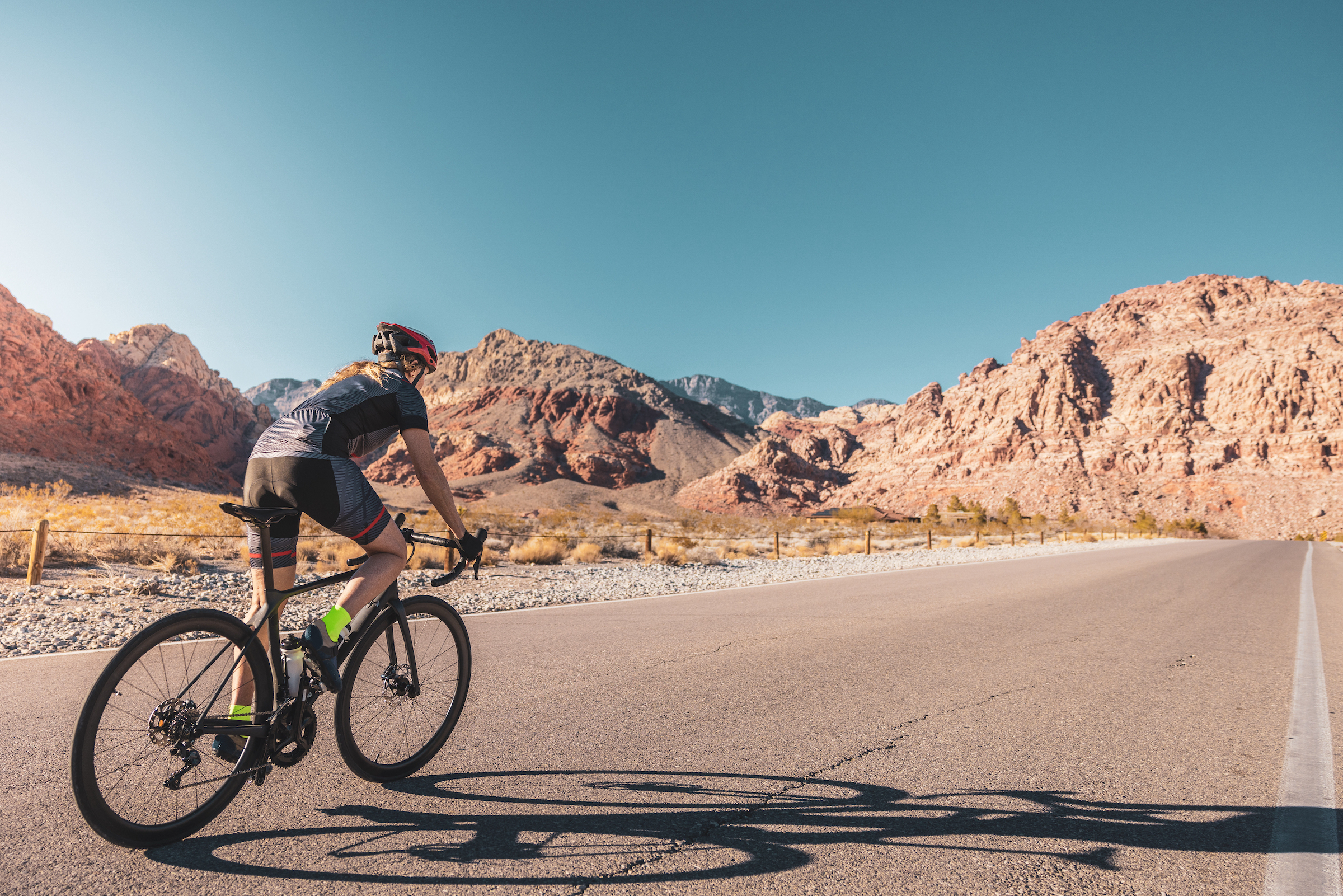How much does extra activity like DIY and shopping affecting my biking?
How to manage day-to-day activity and the 'sum of all stresses' for cyclists - the answer is NEAT


The latest race content, interviews, features, reviews and expert buying guides, direct to your inbox!
You are now subscribed
Your newsletter sign-up was successful
There is an adage frequently tossed around in bike racing circles that goes something like 'don't stand if you can sit, and don't sit if you can lie down'. The thinking behind this is easy to grasp – save energy to boost recovery. And if you're a professional bike racer it's probably often-times simple enough to put into practice.
How about back in the real world though, where we have a working life on top of our riding, as well housework to do, home improvement, shopping of various kinds and family activities to fit into our schedule? Not quite so easy. (We realise, of course, that even pro cyclists have to go shopping and do DIY, but they have a better excuse to duck out of it – especially in the run-up to a big event).
In exercise science, activity of this kind has its own catchy name – NEAT. It stands for Non-Exercise Activity Thermogenesis and it means, essentially, any movement that isn't what you think of as 'exercise'.
While this is the sort of thing that the pros studiously avoid when they can, that doesn't mean the rest of us should do the same, says sports and exercise scientist Andy Turner, who runs ATP Performance Coaching.
"For people who are looking at getting more active and moving about more, it's actually something very useful to do," he says, adding: "Even for those who are fine with the amount of training they do, but maybe don't really do any additional weight bearing exercise, it's a good thing to add in for general health."
The type of activity that counts as NEAT occupies a vast space. If you work in construction and spend your day lifting heavy items, that is NEAT. If you are a full-time parent lifting wash loads in and out of the machine, or your small one in and out of a high-chair, that is NEAT too.
One thing that is definitely not NEAT is sitting at a desk all day long. And with many of us working from home these days, all that NEAT associated with commuting, which can often amount to miles walked between train stations or bus stops and the office each day, has also taken a rapid tumble.
The latest race content, interviews, features, reviews and expert buying guides, direct to your inbox!
This is something worth addressing if you work from home, and Turner says it becomes almost the opposite of that old dictum we mentioned at the beginning of this piece: "Why sit when you can stand, or walk… maybe use a standing desk. When you stand you're supporting your weight, you tend to have better posture," he says.
If your life involves little to no movement, it won't be a surprise to hear that the message is 'embrace the NEAT'. Even making sure that you don't have everything you need at hand – putting the kettle, or fridge, in a different room that you have to get up and walk to, for example – is worthwhile.
However, even if you're riding three or four times a week, that isn't an excuse to get complacent about the value of day-to-day movement, Turner says.
"Adding in a walk to go and get something from the shops rather than Deliveroo it, is something that can help boost your general wellbeing and fitness," he says.
On the other side of the coin, if your job involves a lot of physical activity, you might be wondering where you fit into all this. The good news is, that even a very physically demanding 9-5 does not preclude you from reaching a very high standard on the bike.
You might, however, find that you need to forgo some training on the bike to keep your energy expenditure in balance.
Says Turner: "One of the guys I used to race with was a masonry expert, one of the few people who could make those freestanding stone walls. It was a fairly labour intensive job – lifting rocks and managing those all day every day. He was racing at a high [elite] level, but he didn't train as much as maybe other people at a similar level would, just because of the physical exertion from his job."
Former British mountain bike national champion and multiple National Series road race winner Ian Wilkinson is another great example of this. He worked as a builder alongside his cycling career.
While most NEAT activity in and of itself is unlikely to give your VO2 max a boost, it could help you to be more resilient on the bike if you add it in to what would otherwise be a sedentary day. Likewise, climbing ladders while carrying weight at work could be regularly raising your heart rate to the point where it could help boost your on-bike fitness.
The sum of all stresses
However, improving on the bike requires that you are able to recover from your on-bike sessions and the NEAT you layer on top of them. How much is too much comes down to what Turner terms the 'sum of all stresses' – the total energy expenditure across all activity, NEAT and exercise included.
Sleeping well and eating well will of course, help to mitigate this and enable you to begin each week fresh enough to continue riding and make progression too.
If you want a good rule to live by where possible, Turner recommends scheduling in your big weekend ride on the day you have not also planned to renovate the garden, for example, or do any other demanding activity.
"You probably don't want to do all your garden work on the same day that you're doing your longer ride," he says. "Potentially, have one day of getting stuff done around the house that takes up more energy, and then have the other day to ride the bike and recover."
On the other hand, if you're doing plenty of riding but very little else, try to throw in some NEAT that will offer your body a weight-bearing challenge, even if it's just a bit of walking.
"Just that 10 to 20 minutes of walking, you're putting impacts through the body," Turner says. "You're working on posture in an unsupported state, and it does have an impact on helping use the bone mineral density and muscle mass as well."
We've resisted it until now but, OK, we give in: sounds like a NEAT idea!
After cutting his teeth on local and national newspapers, James began at Cycling Weekly as a sub-editor in 2000 when the current office was literally all fields.
Eventually becoming chief sub-editor, in 2016 he switched to the job of full-time writer, and covers news, racing and features.
He has worked at a variety of races, from the Classics to the Giro d'Italia – and this year will be his seventh Tour de France.
A lifelong cyclist and cycling fan, James's racing days (and most of his fitness) are now behind him. But he still rides regularly, both on the road and on the gravelly stuff.
You must confirm your public display name before commenting
Please logout and then login again, you will then be prompted to enter your display name.
